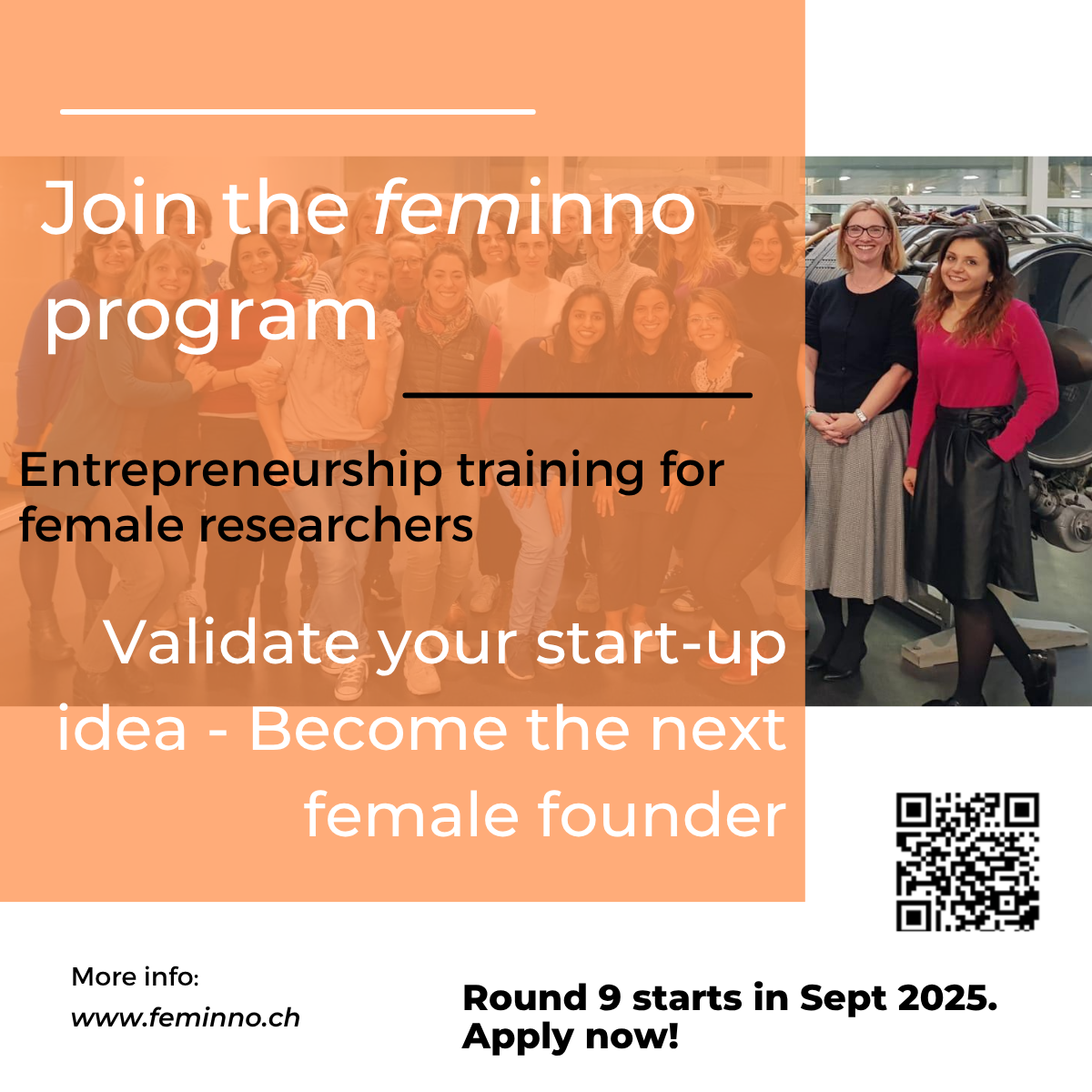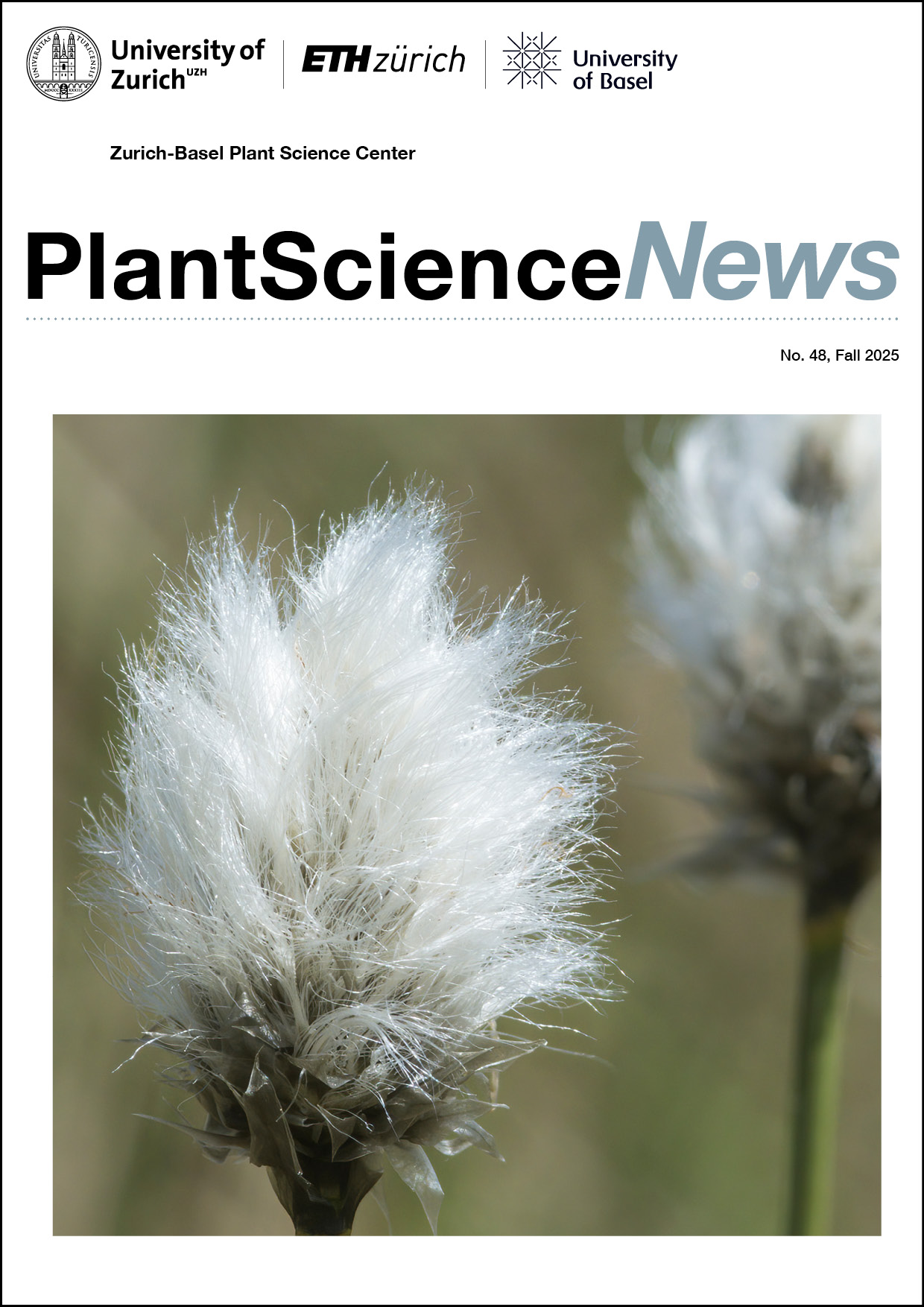News
PhD Exchange 2025

On November 4, 2025 a PhD Scientific Exchange: Remote Sensing, Plant Phenotyping & Biomass Production between the Zurich-Basel Plant Science Center Members and Forschungszentrum Jülich took place at ETH Zurich, Hönggerberg.
Contact: Dr. Bojan Gujas
Calling all visionary female researchers!

Do you have an innovative idea that could change the world? The feminno program is here to help you bring that vision to life! Join a dynamic community of like-minded women and gain access to experienced mentors who will guide you in refining and launching your startup.
Why wait for the perfect moment? This is your chance to turn passion into progress. Apply now and take the next step in your entrepreneurial journey with confidence and support. Join the 10- days feminno training and embark on a journey of discovery and growth. We teach you all you need to get started with your spin-off!
- Get training around business models, pitching, fundraising, leadership and more. Connect with innovation experts to learn about the latest trends and breakthroughs in female-led innovation.
- Connect with like-minded scientists from diverse backgrounds, industries, and disciplines.
- Benefit from mentors who provide guidance and support, helping you navigate through the Swiss entrepreneurship ecosystem
- Attend inspiring Workshops and Panel Discussions to boost your creativity, learn practical skills, and be part of a dynamic community.
Fachtagung Dialog Grün 2025

Symposium 2025

Harnessing Machine Learning for Breakthroughs in Plant and Environmental Sciences
Speakers: A lineup of national and international experts
Location: ETH Zürich Center, tbd
Dates: 13-14th March, 2025
Winter School 2025

Register for the upcoming PSC Winter School 2025: Harnessing Machine Learning for Breakthroughs in Plant and Environmental Sciences (2 ECTS)
Location: ETH Zürich Center, tbd
Dates: 10-14th March, 2025
Flyer (PDF, 498 KB)
PhD Student Experimenting Lab: Explore the Responsible Use of AI in Generating Scientific Texts, Images, Audio and Code

Curious about using Generative AI in your scientific work—ethically and effectively?
This 4-day hands-on course equips PhD students with practical skills to integrate AI tools into their research workflows. From writing and coding to creating visuals and understanding ethical implications, this course combines practice with critical reflection.
📅 May 5, 6, 13 & 14, 2025 | 1 ECTS | 🏛️ Open to all ETH PhD Students as well as for PSC PhDs from UZH and UNIBAS
PSC Annual Report 2024

We are pleased to announce the publication of the Zurich-Basel Plant Science Center’s Annual Report 2024!
This past year has been a dynamic and productive one, marked by groundbreaking research, innovative education initiatives, and impactful outreach efforts. Discover how the PSC has advanced plant and environmental sciences and fostered dialogue between science, policy, and society.
📖 Read the full report here:PSC Annual Report 2024 (PDF, 9 MB)
